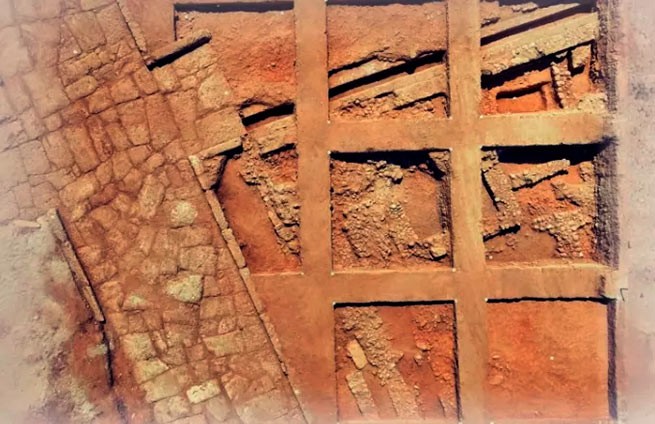During the work on laying a gas pipeline in the center of Alexandroupoli, archaeological finds from the Roman era were discovered.
Five tombs with tiled roofs and rich grave goods have been discovered on the city's south coast, inside a building, adding another piece to the historical puzzle.
The new findings were announced by the archaeologist of the Ephorate of Antiquities of Evros, Philoxenia Aitatoglou, at the 36th annual meeting on archaeological work in Macedonia and Thrace, held in Thessaloniki.
“The burial sites that have been identified, fortunately, were not significantly affected. Of course they were disturbed, since all the work that was carried out in the city, such as sewerage, water supply, telecommunications, passed through them. However, they were saved both outside and inside,” Aytatoglou told the Athens/Macedonian News Agency.
The finds became known thanks to work carried out under difficult conditions, in a limited time frame and with a large share of… luck. “We're digging at the edges of the roads that the pipeline runs through, which are only 50 centimeters wide! So we come into contact with everything that's there.” – explains the archaeologist.
“The difficulty is that when something is discovered, since we are talking about the center of Alexandroupoli, streets and pedestrian crossings where entertainment events are held, it is necessary to give a signal “stop” to the municipality and the traffic police follow the traffic rules, which creates problems not only for the city but also for us, for example, when the weather is not very good, we postpone and postpone everything else,” – he added.
However, as he notes, these are finds that archaeologists were sure to discover, and there is confidence that there are other burials in the area.
This knowledge comes from previous excavations carried out on water and sewerage projects in the 1970s and 1990s, the results of which Ms Aytatoglou also presented at the conference.
“The important thing for us is that the finds date back to the Roman period, and we believe that there is a Roman city on this site. We found an extensive cemetery with rich and special finds, but now we want to see exactly where this city was located.”, concluded Aitatoglu. The good news is that work will continue further north in 2024, and archaeologists hope to find new evidence that will help better connect this part of the story.







More Stories
Six Greek high school students win medals at International Mathematical Olympiad
Olympic Games: Greek Delegation Athletes Head to Paris
Big "police purge" on Athos